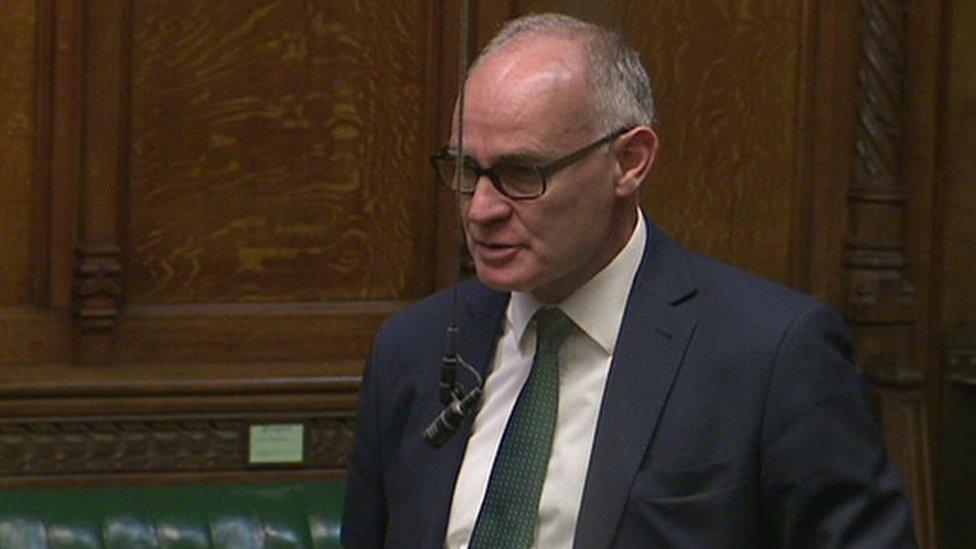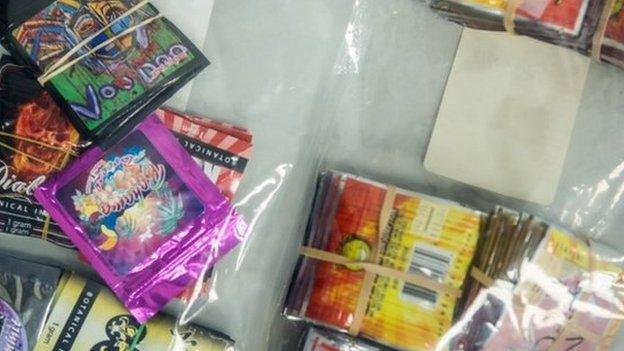Poppers manufacturer 'will fight' legal high ban
- Published

John Addy was a well-known club owner in Huddersfield's gay scene
A man who makes two million bottles of the popper recreational drug a year says he will fight plans to ban them.
John Addy, 67, who used to run a gay nightclub in Huddersfield, told Radio 4's You and Yours he was inspired by Tory MP Crispin Blunt's admission in a Commons debate that he uses poppers.
The drug, which is popular with gay men, is to be banned on 1 April under the Psychoactive Substances Bill.
Policing Minister Mike Penning said the medicines regulator was reviewing it.
Legal highs: Psychoactive drugs policy 'rushed', say MPs
Speaking about Mr Blunt's intervention in the Commons, Mr Addy, who runs the firm Liquid Gold, said: "Until now we've stayed in the background to see what was going to happen.
"But when he made that statement I thought we make the product and we should give him all the support we can."
Mr Addy, who previously ran the Gemini nightclub, said he noticed clubbers would bring the liquid in having got it from pharmacists.
When he sold the club in 1981 he went into business manufacturing them to other gay clubs, but now Liquid Gold trades across Europe to wholesalers.

What are poppers?
Poppers are chemicals such as butyl nitrite, isopropyl nitrite, isobutyl nitrite and amyl nitrite, which dilate the blood vessels
This action allows more blood to the heart and creates a "head rush" sensation
Originally an angina treatment, they got their name from a glass vial which was "popped" under the nose
The government has linked them to deaths and is including them in new legislation designed to outlaw "legal highs"

In 1999, the Medicines Control Agency brought a test case against manufacturers on the basis that poppers containing isobutyl nitrite were medicines, and therefore required a product licence for sale and supply in the UK.
The case was not successful and the defence sufficiently argued the products did not cause significant harm.
Mr Addy said: "This was an important test case and a five-day trial. The evidence was put forward to the jury.
"They came back with a sensible answer and that's why I'm surprised this has surfaced at the moment."
Crispin Blunt told the Commons last week banning poppers was 'stupid'
He has called on the government to consult with him, and is now in discussions with his lawyers over the April ban.
An amendment excluding poppers from the new Psychoactive Substances Bill was defeated in the House of Commons.
Policing Minister Mr Penning said poppers had been mentioned on 20 death certificates since 1993.
'Cat and mouse game'
In a statement to Radio 4, Mr Penning added: "The landmark Psychoactive Substances Bill will fundamentally change the way we tackle new psychoactive substances - and put an end to the game of cat and mouse in which new drugs appear on the market more quickly than government can identify and ban them.
"We will work with the Medicines and Healthcare products Regulatory Agency and others on the evidence for the use of poppers and we intend to respond before the summer recess."
- Published20 January 2016

- Published23 October 2015
